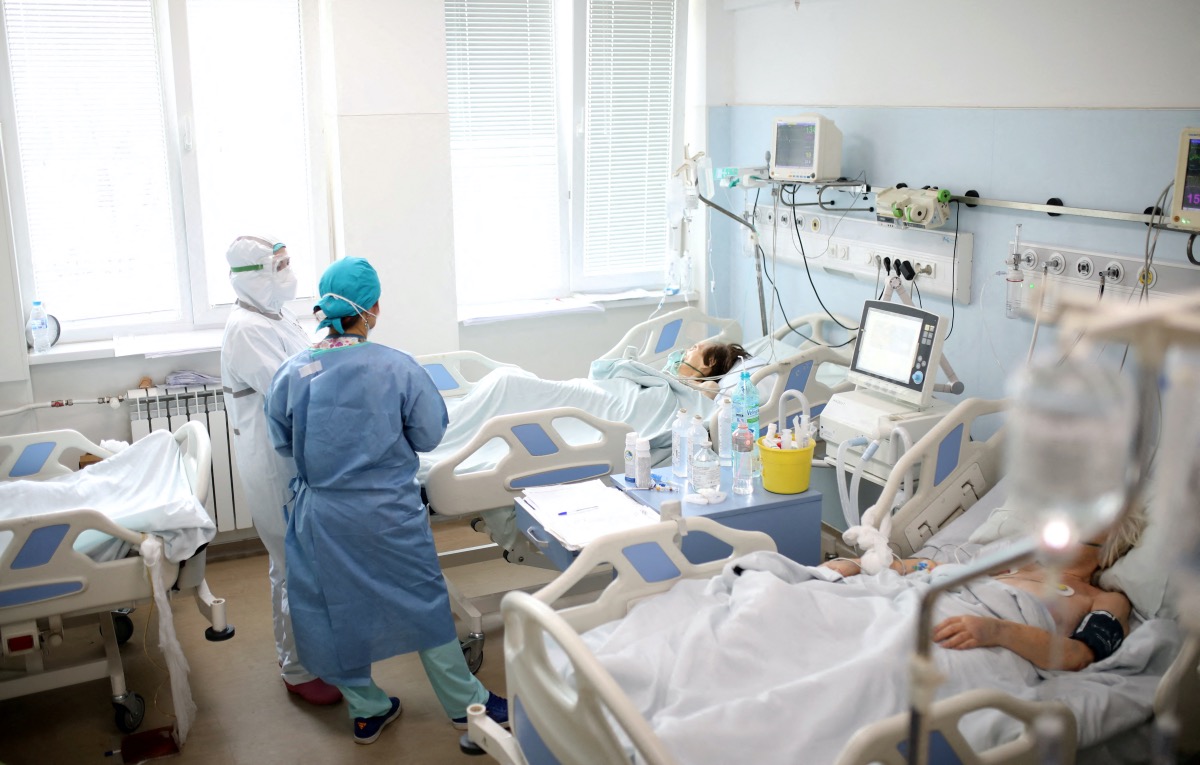The risk of death, hospitalization and serious health issues from COVID-19 jumps significantly with reinfection compared with a first bout with the virus, regardless of vaccination status, according to a study published on Thursday.
“Reinfection with COVID-19 increases the risk of both acute outcomes and long COVID,” said Dr Ziyad Al-Aly of Washington University School of Medicine in St Louis. “This was evident in unvaccinated, vaccinated and boosted people.”

Medics tend to coronavirus disease (COVID-19) patients at the Intensive Care Unit (ICU) of Alexandrovska hospital in Sofia, Bulgaria, on 29th January. PICTURE: Reuters/Stoyan Nenov/File photo.
The findings were drawn from US Department of Veterans Affairs data collected from 1st March, 2020, through 6th April, 2022 on 443,588 patients with one SARS-CoV-2 infection, 40,947 with two or more infections, and 5.3 million non-infected individuals. Most of the study subjects were male.
Reinfected patients had a more than doubled risk of death and a more than tripled risk of hospitalization compared with those who were infected with COVID just once. They also had elevated risks for problems with lungs, heart, blood, kidneys, diabetes, mental health, bones and muscles, and neurological disorders, according to a report published in Nature Medicine.
“Even if one had prior infection and was vaccinated – meaning they had double immunity from prior infection plus vaccines – they are still susceptible to adverse outcomes upon reinfection,” Al-Aly, the study leader, said.
People with repeat infections were more than three times more likely to develop lung problems, three times more likely to suffer heart conditions and 60 per cent more likely to experience neurological disorders than patients who had been infected only once, the study found. The higher risks were most pronounced in the first month after reinfection but were still evident six months later.
The cumulative risks and burdens of repeat infection increased with the number of infections, even after accounting for differences in COVID-19 variants such as Delta, Omicron and BA.5, the researchers said.
“We had started seeing a lot of patients coming to the clinic with an air of invincibility,” Al-Aly told Reuters. “They wondered, ‘Does getting a reinfection really matter?’ The answer is yes, it absolutely does.”
We rely on our readers to fund Sight's work - become a financial supporter today!
For more information, head to our Subscriber's page.
Ahead of the fast approaching holiday season with travel and indoor gatherings, “people should be aware that reinfection is consequential and should take precautions,” he added.
“We’re not advising draconian measures, but maybe if you’re going on a plane, wear a mask,” Al-Aly said. “If you’re in a supermarket, consider that the person near you may have a weak immune system, and if you wear a mask you might help to protect them.”






